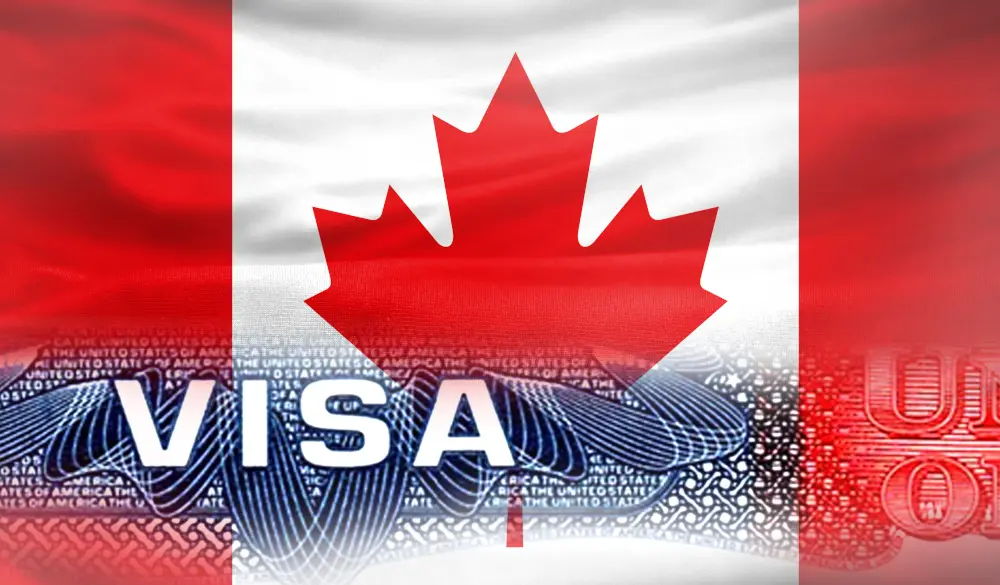
Canada Visa Types
Canada offers different types of visas for people who want to visit, study, work, or live permanently in the country. Each visa has its own requirements and application process. Understanding these visa categories can help applicants choose the right one for their needs.
Visitor Visas
A visitor visa, also called a Temporary Resident Visa (TRV), allows people to enter Canada for tourism, family visits, or business trips. It is usually valid for up to six months. Some travelers from visa-exempt countries only need an Electronic Travel Authorization (eTA) instead of a visitor visa.
To get a visitor visa, applicants must prove they have enough funds for their stay, a valid passport, and ties to their home country to ensure they will return after their visit. The application process includes filling out forms, providing documents, and sometimes attending an interview.
Student Visas
A student visa, or study permit, is required for those who want to study in Canada for more than six months. It is granted to students accepted by a designated learning institution (DLI) in Canada. In addition to the study permit, some students may need a TRV or eTA, depending on their nationality.
Applicants must provide proof of acceptance from a DLI, financial support for tuition and living expenses, and a clean criminal record. Some students may also need to take a medical exam. A study permit allows students to work part-time while studying and, in some cases, stay in Canada after graduation through a work permit.
Work Visas
A work visa, or work permit, allows foreigners to work legally in Canada. There are two main types: employer-specific work permits and open work permits. An employer-specific work permit is issued for a particular job with a specific employer, while an open work permit lets individuals work for any employer in Canada.
To apply, applicants may need a job offer, a Labour Market Impact Assessment (LMIA), and proof of qualifications. Some programs, like the Post-Graduation Work Permit (PGWP), let international graduates work in Canada without needing an LMIA.
Express Entry System
The Express Entry system is for skilled workers who want to immigrate to Canada permanently. It includes three main programs: the Federal Skilled Worker Program (FSWP), the Federal Skilled Trades Program (FSTP), and the Canadian Experience Class (CEC).
Applicants must create an online profile and provide details about their education, work experience, and language skills. The system ranks candidates using the Comprehensive Ranking System (CRS), and those with the highest scores receive invitations to apply for permanent residency.
Provincial Nominee Program (PNP) Visas
The Provincial Nominee Program (PNP) allows Canadian provinces and territories to nominate individuals who meet their specific labor market needs. Each province has its own criteria and streams for skilled workers, entrepreneurs, and graduates.
Applicants usually need a job offer from a Canadian employer and must express their interest in a particular province. Some PNP streams are linked to Express Entry, allowing faster processing times for permanent residency applications.
Family Sponsorship Visas
Canadian citizens and permanent residents can sponsor their family members to immigrate to Canada. The family sponsorship program includes spouses, common-law partners, dependent children, parents, and grandparents.
Sponsors must prove their financial ability to support the sponsored person and agree to provide financial support for a specific period. Sponsored family members can become permanent residents and enjoy the same rights and benefits as other immigrants.
Business and Investor Visas
Canada offers business and investor visas for entrepreneurs and investors who want to contribute to the economy. These programs include the Start-Up Visa Program and provincial entrepreneur streams under the PNP.
Applicants must show a viable business plan, investment funds, and business experience. Some programs require support from a designated organization, such as a venture capital fund or business incubator.
Refugee and Asylum Visas
Canada provides protection to people fleeing persecution, war, or violence. Refugee visas are available for those who qualify under the United Nations Refugee Convention or Canada’s refugee sponsorship programs.
Asylum seekers can apply at the border or within Canada. Their cases are reviewed by the Immigration and Refugee Board (IRB), which decides if they qualify for protection.
Super Visa for Parents and Grandparents
The Super Visa allows parents and grandparents of Canadian citizens or permanent residents to visit for extended periods. Unlike a regular visitor visa, it is valid for up to 10 years and allows multiple entries with stays of up to five years at a time.
To qualify, applicants must have a child or grandchild in Canada who meets the income requirement and provides a letter of invitation. They also need medical insurance and must pass a medical exam.
Conclusion
Canada offers various visa options for visitors, students, workers, families, and refugees. Each visa type has specific requirements, and choosing the right one depends on individual circumstances. Understanding these visas can help applicants prepare their documents and increase their chances of approval.




